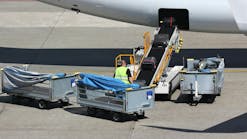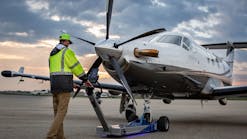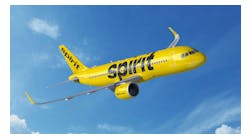EDMONTON (CP) -- A demonstration of a new iris-recognition screener at the Edmonton International Airport turned into a bit of a comedy routine for Deputy Prime Minister Anne McLellan on Wednesday.
McLellan stared into the scanning machine, which aims to give users quicker passage through customs when returning to Canada, but twice a computerized voice declared: ''Iris scan unsuccessful.''
''Oh my gosh,'' declared the deputy prime minister. ''Is there something in my past? Have I paid all my parking tickets? Who knows?''
The problem, it turned out, was being caused by media photographers' flashing cameras, which were messing with the machine's view of hers eye.
Called CANPASS Air, the system takes a black-and-white photo of the eye and cross-references the iris with an Ottawa database in about 20 seconds.
The program already services seven cities, including Calgary.
The technology is called biometrics, which uses physical characteristics, such as fingerprints or facial features, to verify a person's identity.
An iris is as individual as a fingerprint.
Only Canadian and American citizens or resident aliens of the past three years may sign up. The service costs $50 but if free for those under 18.
The unveiling of the $167,000 project comes at a time when U.S. President George Bush suggests using fingerprints in lieu of a passport for Canadian travellers who head south.
In an announcement this spring that raised concerns over curtailing of cross-border trade, the U.S. Homeland Security Department announced that all Canadians travelling to the United States must have a passport by 2008, instead of driver's licence or birth certificate.
The State Department has also confirmed that it is considering biometric identification, where the United States would keep a database of Canadian fingerprints.
''The events of 9/11 moved this along much quicker,'' Loretta Nyhus, spokeswoman for the Canada Border Services Agency, said of CANPASS Air.
McLellan, who is also minister of Public Safety and Emergency Preparedness, said if the U.S. requires biometrics information from Canadian travellers, Canada would likely adopt a policy of reciprocity and ask for the same information.
Tim Chander, research manager for Alberta's Office of Information and Privacy Commissioner, said although biometrics itself isn't threatening, questions have to be raised about who can access the information and what the information be used for.
The government says the information is protected under the Privacy Act.
As for CANPASS Air, he said, there is less threat of invasion of privacy because travellers consent to the program and Canada has significant safeguards.
The government does a thorough background security check on all applicants, Nyhus said, and they are reassessed annually.
Since its inception two years ago, some 9,000 people have signed up for program nationwide.




